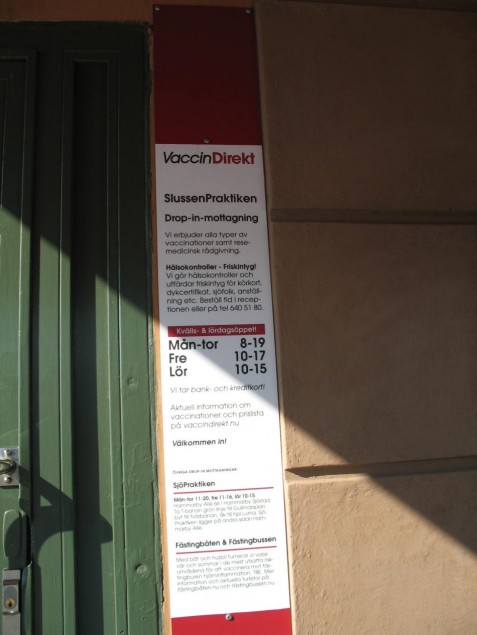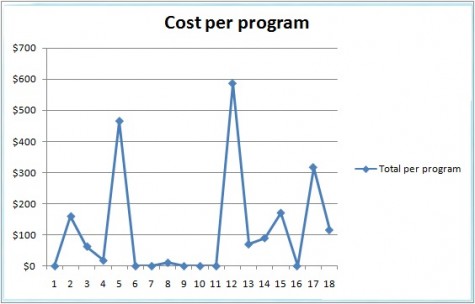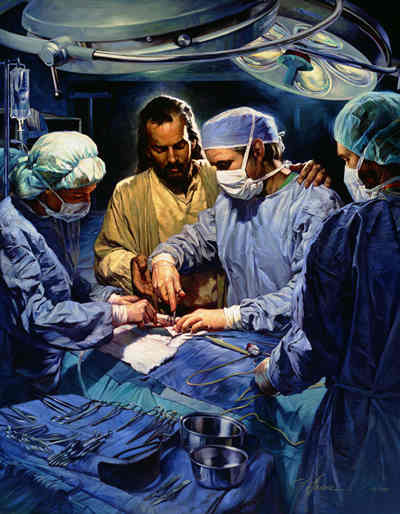Hello there! It has been pointed out to me by, uh, all 2 people who read this blog, that I have not posted a new entry in quite some time. Well, I am now studying (“studying”) for Step 2 CK (more on that later), so clearly this will cause an exponential increase in the number of blog entries! I mean, I can’t study all the time. And since I’ve gone through 3rd year, I’ve developed some sort of medical ADHD/narcolepsy, where I fall asleep if I’m sitting quietly for more than 10 minutes at a time, but also try to do 13 different things at once. I’m a medical marvel!
Anyway. A few weeks ago, Tim asked me about my opinion on universal healthcare (or the expansion of healthcare coverage, whatever you want to call it, because the current bill making its way through the Senate is not what I envision universal healthcare to be), so here it is!
A few months ago, I was talking to someone else — a Canadian! — and she was talking about how dumb American Senators get it all wrong when they’re talking about Canadian universal healthcare because they don’t even KNOW about it, and who are they to slam universal healthcare when they’ve never even had it themselves, etc. And that’s true, people twist the issue of universal healthcare and say dumb things they don’t know about. But, I think that’s true in both ways — my liberal friends and those in the universal healthcare camp oftentimes are very single-minded about the universal healthcare system, and talk up the Scandinavian/Canadian/British health systems like they are the greatest things on earth, with no problems. And you know what, I think they are better systems in a utilitarian sense (more on that later), but I have to say that no system can be flawless, or else every country would have adopted it by now. Great Britain is still a constitutional monarchy, which to me seems CRAZY because obviously democracy is the way to go, RIGHT? Or not, because the monarch still fulfills some sort of role that is needed. Where was I going with this? Not to a political science or international affairs discourse, that’s for sure.
Right, so I wanted to talk about healthcare, and I wanted to talk about my experiences with it, both from a theoretical point of view and from an anecdotal point of view. My theoretical background comes from a summer working full-time and a year working part-time (extracurricularly) on research for writing a universal healthcare plan for America. My anecdotal background comes from being my mother’s child (you’ll see) and being a medical student, soon-to-be-oh-please-please-say-it’s-over-soon doctor.
Let me start off by saying that I am a proponent of a universal healthcare plan for America. (Wow, that sounded very politico!) Call it whatever you want, either the true meaning of universal coverage for everybody, or the newer, less “scary liberal”-sounding “quality, affordable healthcare for all,” it’s all the same to me and I’ll agree with it, whatever you label it. I think all people living in this country should get the same basic coverage for medical care. What do I mean by basic? Basic is anything you need, especially primary care and oh my GOD, VERY MUCH SO preventive care.
Single-payer
Who pays for it? I think it should be single-payer. If you want to set up a private company that handles it (don’t do it!), I’d be for it as long as it was VERY ACCOUNTABLE for the money, and we’ve all seen how well private companies have done with accountability lately (answer: not at all). Obviously, the single “company” that has the most stake would be the federal government. Some people make the argument for state-based single-payer, but I’m not interested in talking about that because it feels like discussing the trees and forgetting the forest (not to mention, well, it’s a hassle and difficult if you move states, or if you’re like me and are a permanent resident of one state but go to school in another), because I just want it to be publicly paid and publicly accountable.
Also, guess what? Success in healthcare should be measured in illnesses prevented, or lives saved, or morbidity/lasting ill-effects avoided, or increased life span. Success in healthcare should not be measured by money earned. The profit of healthcare is people, not pennies. (Hey, I should make that a bumper sticker.)
Privately provided
I think it’s best, for this country, for the healthcare to be privately provided. What do I mean? I mean that you don’t have to go to your neighborhood hospital to see the doctor that is assigned to you, like the way public school is done. I think that Americans are used to getting to pick, rightly or wrongly, which doctors they see. If it means they doctor shop until they find a doctor willing to use that prescription pad, then so be it. I’m not interested in those people. I’m not interested in Senators who can buy their own healthcare and concierge medicine right after buying another Porsche. I’m interested in the most common denominator: getting people to see the doctor before and when they need to.
That’s it. That’s my ENTIRE REASON for wanting this very complicated system. I want my patients to see a primary care doctor to screen for high blood pressure, heart disease, diabetes, cervical and prostate cancer. I want my patients to grow up learning good dietary and exercise habits. I want my patients to get immunized in a timely manner (actually, immunization programs are the one well-run aspect of primary care medicine that I’ve seen in my working at the general hospital clinic; them and prenatal care for the pregnant ladies) and screened for early childhood developmental problems. And when there’s a problem, I want my patients to get to see a doctor, and get the medication/treatment/surgery they need so that it doesn’t get worse. Because you know what? Untreated medical problems tend to get worse. Whoops. And if it takes private physicians to make people happy, and people don’t want to wait in a hospital clinic for a hospital’s resident physician (or, ahem, let’s face it, sometimes a 3rd year medical student), I totally don’t blame you. I hate working at clinic, anyway, and I wouldn’t go to a general medical clinic, either.
But you know what else? It’s SO HARD to get everybody to see the doctor when they need to. People don’t have time, people don’t care, people can’t figure out the healthcare system, people don’t have money, people don’t have a lot of things. I just think people should be able to have a doctor to see when they are sick. It’s not a lot to ask, and it seems like a reasonable right to ask for, to me.
For all?
When I was in Sweden, 3 Americans and 3 Swedes (sounds like the start of a joke…) got to talking about “rights” that the government must provide its citizens. Did you know that in Sweden, apartment buildings must, by law, have free washers and dryers for its tenants? Because everybody needs clean clothes! Did you know that in Stockholm, you as a citizen can go into one of three “vaccine” clinics and get checked up and get vaccinations, including costly travel vaccinations and malaria prophylaxis, for free, because you need it? THAT SOUNDS CRAZY to me. Crazy awesome.

But the problem with this awesomeness is that it costs money. Your money. 30% taxes, to be exact. So, if you are a retail manager, as one of the Swedes was, you make upwards of $60,000 a year! That’s so much money, you say! But most people are paid about the same amount. And you all pay 30% of that to taxes, for your free laundry and your travel vaccines. And you know what, that is a super set-up for us all, but it’s not a better set-up for me, myself.
This brings me to talking about the utilitarian aspect of universal healthcare. Getting everybody to see the doctor when they need to see the doctor, and to prevent problems because of not seeing the doctor, is beneficial for everybody. It’s beneficial in the number of workdays not lost to sickness, beneficial in the amount of money saved because diuretics for treating high blood pressure is cheaper than embolization or rehab for responding to uncontrolled high blood pressure that causes a stroke, beneficial in that the average lifespan of our countrymen will increase. It’s good for all of us. But it’s bad for me, singly. It means that I can’t get my appointments when I want to, because I have to wait in line. It means that I’ll have to pay more to get more-than-basic care. (I can’t even think of more examples of how it’s bad for the individual, it’s such a stupid argument against universal healthcare.) Oh, right: most importantly, it means that I am not a special little snowflake.
Honestly, I think that this is sometimes the root of the biggest hump (mixed metaphor, ahoy!) in getting Americans to come around to the idea of universal healthcare. Americans have this idea that healthcare is something they buy, so they comparison shop and price shop (for real!) and demand certain privileges like they were shopping at a Target. And doctors have responded: the last two offices I was in were private orthopedic surgeons’ offices, and they all had websites touting what they could do for you and fancy business cards and pens to give out. And multiple doctors have pulled me aside and discussed how they’ve had to become businessmen in order to stay being doctors. I did not sit through 23948 hours (appx.) of biochemistry to end up in sales.
It has also been mentioned that the American Senators who were talking about fearing universal healthcare cited the point that universal healthcare (or, to scare us, opponents now call it “socialized medicine”) might mean we have to wait a long time, or never get surgeries/procedures unless the situation is dire, that it means the end for elective or semi-elective procedures. I think this is true, in that there will be longer waiting lists, because oh, now everybody who needs a procedure is going to get it, instead of just the ones who can afford it/have insurance (see: above paragraphs regarding what’s best for us versus what’s best for me). This is why I think that any universal healthcare system setup in this country has to give an optional buy-out clause for people who want to and are willing to buy elective procedures, or buy a private doctor to do their surgery next week instead of next month. Fine, go ahead. If it means that everybody can still get the care they need, you go and buy-out all you want. Essentially, I want a buy-out system where you pay for extra care, instead of our current buy-in system where you pay for any care.
What really makes this argument for universal coverage, for me, is that something like 75% of personal bankruptcies that are declared, are in the wake of medical emergencies or expenses. (There was a study that came out in like, 2006, and I could find it, but I’m lazy and I know you wouldn’t slog through it). You know why? Because for all we bitch about waiting for the doctor or not getting appointments fast enough, when you are in a car accident, you get care. You get care, pronto. There is not a single ER or trauma doctor worth his salt who wouldn’t follow the same protocol for you, insured or not, if you came in through those ER doors strapped to a c-spine collar and on a gurney. We don’t even know your freakin’ name when you come in (traumas at my hospital are labeled in some theme per trauma, as in, the people in the same accident get labeled Alpha, Beta, Delta, etc., and the next trauma situation will be named Denver, Tucson, Portland, etc.), much less your insurance coverage. Family members of our patients don’t say to us, “Well, how much does it cost to reattach the finger? How about just one of them?” (which is why I smelled something fishy when this scenario was relayed in Sicko, but I can’t prove it). They say to us, “Please do what you can.” And we say to them, “We will try.” Nowhere does money come into play, and I have to say, this is probably why (if the study is true) 75% of our patients then go bankrupt — they spent the money because they had to.
My mom gets most of her healthcare in Taiwan. Taiwan has some sort of universal coverage with some buy-out options (honestly, I’m not too clear on the details). She had a ganglion cyst that wasn’t dangerous, just painful and annoying. When she went to her doctor last time, she wanted it surgically removed. They were like, “Well, it’s not absolutely necessary, so we can’t do it and have the government pay for it. But you could pay [insert large fee here] for optional removal.” And my mom was like, “HA! That’s what I’d pay in the States. Thanks, but no thanks.” Um. I forget where I was going with this story because it’s late and I’m tired, but I think it had to do with an acknowledgement that universal healthcare is not going to solve all our problems. Just our biggest problem.
The end. *curtsy*








